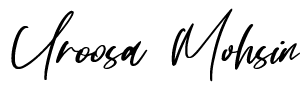Description
GOAL SETTING & ACHIEVEMENT CURRICULUM
The Goal Setting & Achievement Curriculum is designed to provide individuals with the necessary tools and strategies to set meaningful goals and effectively work towards their accomplishment. The curriculum begins with an introduction to goal setting, highlighting its significance in personal and professional spheres. Participants will explore the multitude of benefits associated with goal setting, such as increased motivation, enhanced focus, and a sense of direction in life.
A key aspect of the curriculum involves delving into the concept of SMART goals. Participants will learn how to create goals that are Specific, Measurable, Achievable, Relevant, and Time-bound. Through practical examples and engaging exercises, they will develop the skills needed to formulate clear and actionable goals that are more likely to lead to success.
In addition to setting SMART goals, the curriculum emphasizes the importance of understanding one’s personal values and vision. By helping individuals identify their core values and align them with their goals, the curriculum ensures that participants are pursuing objectives that are truly meaningful and in line with their authentic selves. Furthermore, participants will be guided to envision their desired future, connecting it with their goals to create a powerful sense of purpose and motivation.
To facilitate the process of goal achievement, the curriculum incorporates strategies for breaking down long-term goals into smaller, manageable steps. Participants will learn how to create action plans, set milestones, and track progress effectively. The curriculum also addresses potential obstacles and provides techniques for overcoming challenges, fostering resilience and perseverance in the pursuit of goals.
Throughout the curriculum, participants will engage in practical exercises, group discussions, and self-reflection activities to reinforce their learning and apply the principles of goal setting to their own lives. By the end of the program, individuals will have developed a clear understanding of goal setting best practices and possess the skills and mindset necessary to set, pursue, and achieve their goals successfully.
“The biggest adventure you can take is to live the life of your dreams.” – Oprah Winfrey
OUTCOMES OF GOAL SETTIGN & ACHIEVEMENT
The goal setting process yields a range of valuable outcomes that contribute to personal growth and achievement. By actively engaging in goal setting, individuals can expect the following outcomes.
Clarity and Focus: Goal setting brings clarity to individuals’ aspirations, helping them define what they truly want to achieve. This clarity enables them to focus their efforts and resources on specific targets, avoiding distractions and fostering a sense of purpose.
Motivation and Commitment: Setting goals ignites motivation by creating a vision of the desired outcome. It fuels individuals with the determination and commitment needed to overcome challenges and persevere in the face of obstacles, enhancing their drive and resilience.
Progress and Achievement: Goal setting provides a structured framework for measuring progress and celebrating milestones. It enables individuals to track their advancement, recognizing their accomplishments along the way and boosting their self-confidence.
Personal Growth and Development: The process of goal setting prompts individuals to assess their strengths and areas for improvement. It encourages self-reflection and fosters a growth mindset, leading to continuous personal development and the acquisition of new skills and knowledge.
Effective Time Management: Goal setting facilitates effective time management as individuals prioritize tasks and allocate resources in alignment with their goals. It helps individuals focus on high-priority activities, avoiding procrastination and optimizing productivity.
Enhanced Decision Making: Clear goals provide a foundation for informed decision making. Individuals can evaluate options and make choices that align with their desired outcomes, resulting in more intentional and effective decision-making processes.
Increased Confidence and Self-Efficacy: Accomplishing goals boosts individuals’ confidence in their abilities and strengthens their belief in their capacity to succeed. This increased self-efficacy positively impacts their overall self-esteem and empowers them to take on new challenges.
Adaptability and Resilience: Goal setting encourages individuals to be flexible and adaptable in response to changing circumstances. It cultivates resilience by teaching individuals to learn from setbacks, adjust their approach when necessary, and persevere in the face of adversity.
BENEFITS OF GOAL SETTING & ACHIEVEMENT
Goal setting offers a multitude of benefits that empower individuals to take control of their lives, maximize their potential, and experience a greater sense of fulfillment and success in various aspects of life. Some key benefits of goal setting include:
Clarity and Direction: Setting goals provides individuals with a clear sense of direction and purpose. It helps them identify what they want to achieve and create a roadmap to guide their actions and decisions.
Motivation and Focus: Goals serve as powerful motivators, igniting enthusiasm and determination to work towards desired outcomes. They provide individuals with a focal point for their efforts, enabling them to concentrate their energy and resources more effectively.
Increased Productivity: Setting goals enhances productivity by providing individuals with a structured framework for prioritizing tasks and allocating time and resources accordingly. It helps individuals focus on meaningful and impactful activities, avoiding distractions and procrastination.
Measurable Progress: Goals provide a benchmark for measuring progress. By setting specific and measurable objectives, individuals can track their advancement, celebrate milestones, and stay motivated by witnessing their own growth and achievements.
Enhanced Self-Confidence: Accomplishing goals boosts self-confidence and self-belief. It reinforces individuals’ belief in their abilities and strengthens their sense of self-efficacy, empowering them to tackle new challenges and pursue even more ambitious goals.
Improved Time Management: Goal setting encourages effective time management. By setting priorities and allocating time to different tasks, individuals can make better use of their time, increase productivity, and reduce stress associated with disorganization or lack of focus.
Personal Development: Goal setting promotes personal growth and development. It challenges individuals to step out of their comfort zones, acquire new skills, and expand their knowledge. The pursuit of goals often leads to self-discovery, resilience building, and the development of valuable qualities like perseverance and adaptability.
Greater Satisfaction and Fulfillment: Achieving meaningful goals brings a sense of satisfaction and fulfillment. It gives individuals a sense of accomplishment and purpose, contributing to their overall well-being and happiness.
Improved Decision Making: Goal setting supports better decision making by providing a clear framework for evaluating options. Individuals can make decisions that align with their goals and values, ensuring they are moving in the right direction and making choices that contribute to their long-term success.
Stress Reduction: Setting and pursuing goals in a structured manner can help reduce stress. By having a clear plan and direction, individuals feel more in control of their lives and are better able to manage challenges and setbacks along the way.



